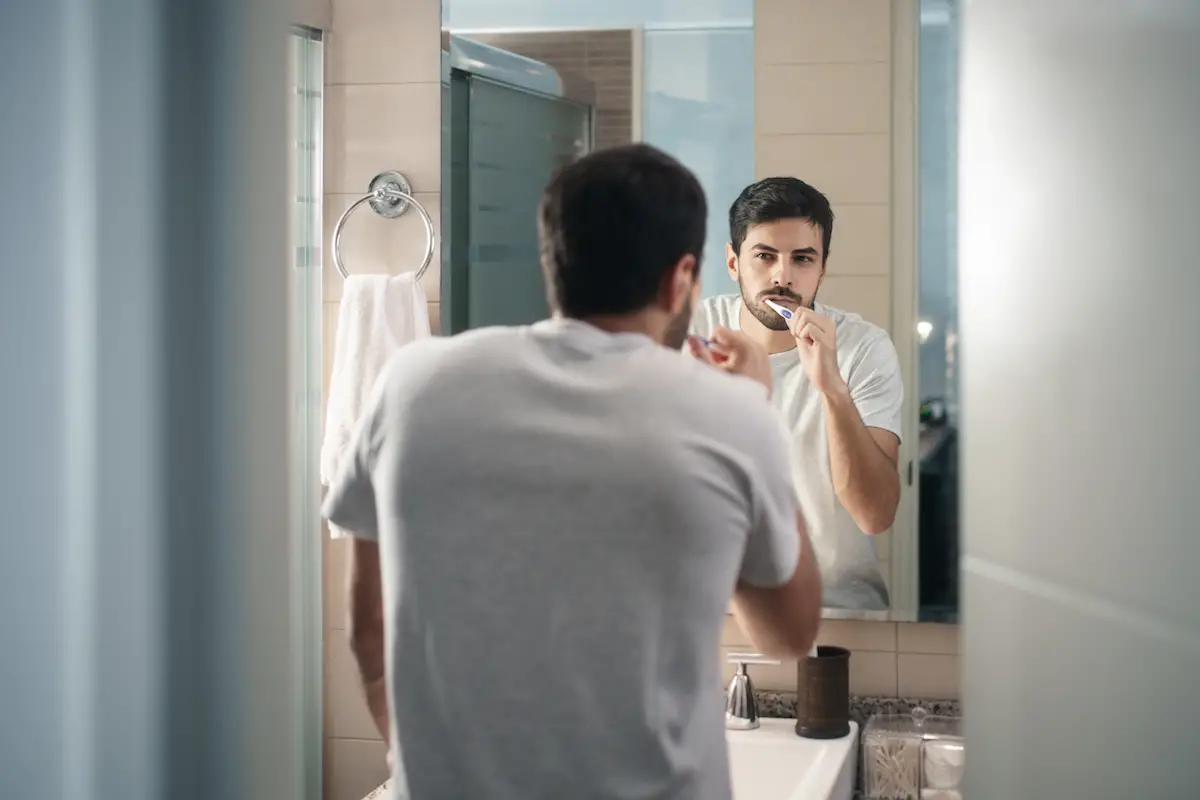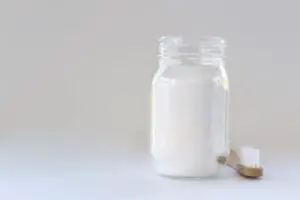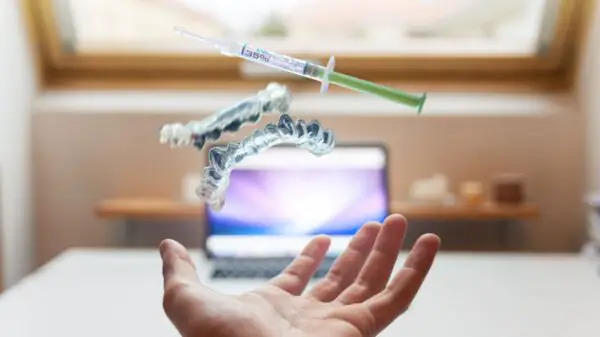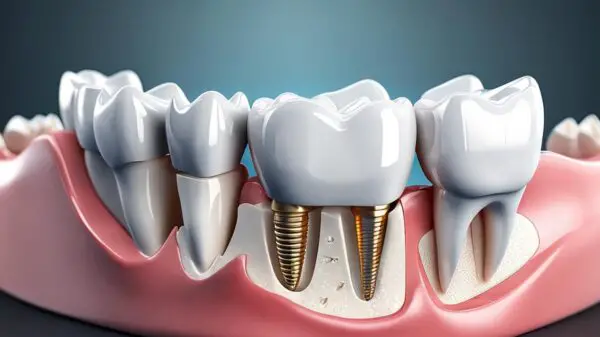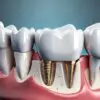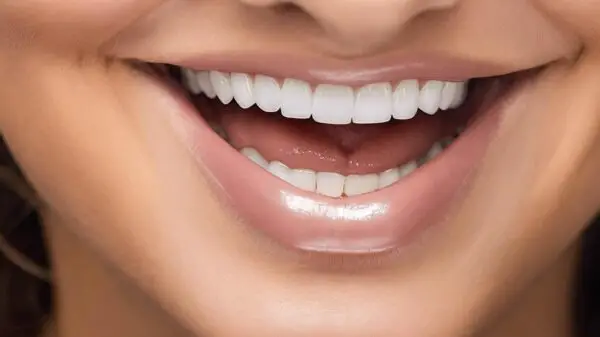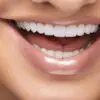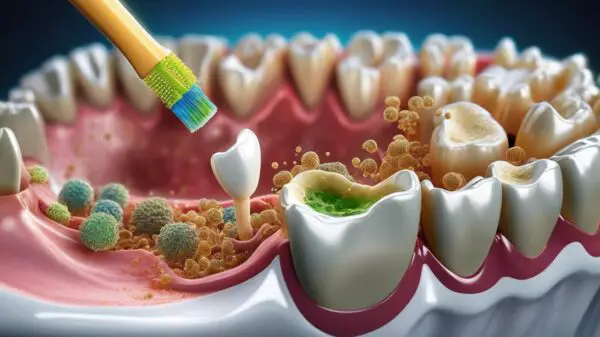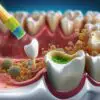How to Remove Tartar Without a Dentist
When plaque builds up on your teeth, it doesn’t look good, it doesn’t feel good, and it can cause serious dental problems down the road. Regular checkups with your dentist are the best way to ensure the removal of plaque and tartar and to prevent it from coming back, but dental visits aren’t always enough.
So, how do you remove tartar without a dentist? The best way to remove tartar without a dentist is to brush your teeth twice a day with fluoride toothpaste and to make sure to floss and use mouthwash. Also, rinsing with baking soda or vinegar will help keep the tartar build-up at bay.
Proper oral health care. can help your teeth stay pearly white, strong, healthy, and feeling good. If you’ve found yourself unable to visit the dentist as often as you should, or experiencing more tartar build-up between appointments and want to help keep levels low between visits, this article will outline the things you can do to remove the tartar and prevent its growth. Keep reading to find out more.

What Is Tartar?
Tartar, which is also known as dental calculus, occurs on the teeth when plaque is left to build up and calcify. It is a hard, calcified deposit that forms along and coats the teeth and gums. Once the plaque hardens, becoming tartar, it can be difficult to brush and floss properly and can lead to cavities, bad breath, yellowing teeth, and gum disease.
Symptoms of tartar build-up and potential gum disease include red, swollen gums, tender gums, and gums that bleed when you floss or brush. Gum disease, also called Gingivitis, can progress further into periodontitis which is not reversible. Periodontitis can lead to painful chewing, losing teeth, gums separating from your teeth, and other painful side effects. Tartar buildup can lead to much more serious, painful, and expensive problems so taking care of your teeth is very important.
Bacteria in your mouth is normal, no matter how well you take care of your oral health. This bacteria often mixes with sugary and starchy foods, resulting in a sticky film called plaque. When plaque is not removed regularly, by brushing, it hardens and becomes tartar. Tartar is really only effectively removed with specialized dental tools, though with proper brushing, you can prevent any left-behind plaque from turning into tartar.
Removing Tartar Without a Dentist
If you follow all the proper steps mentioned in the previous section, you will already be set up for the successful removal of tartar. However, there are a few home remedies that are effective in removing plaque build-up before it becomes tartar:
1. Vinegar and Water
Warning, this will not taste good! Mix a couple of teaspoons of white vinegar with salt and water and use it to rinse out your mouth. Vinegar is anti-bacterial and can help prevent plaque and tartar.
2. Baking Soda
Baking soda is often used to help whiten teeth, as it acts as a gentle abrasive to remove plaque from teeth. Not to mention it’s probably already in your home. You can make a paste with it by stirring in a few drops of water to half a teaspoon of baking soda, then brush your teeth gently before rinsing with water.
Truthfully, hardened tartar bonds strongly with the enamel on your teeth, making it difficult to fully remove without specialized dental tools. These two home remedies mentioned are helpful in diminishing build-up and removing plaque. However, any hardened tartar will likely be left behind.
Tartar Removal at the Dentist
Professional cleanings at the dentist will effectively remove any tartar you may have. This occurs with a simple cleaning, debridement, or scaling and root planing. As long as you don’t have any bone loss or periodontal disease, regular cleaning will be successful. Your dentist will use a scaler, a special tool, to remove dental plaque, tartar, and stains around your gums and between teeth.
If you have dense calculus and or periodontal disease, a debridement or scaling, and root planing will be more effective. A debridement is a procedure where ultrasonic instruments and hand tools are used to fracture tartar and remove tartar. Very similar to regular cleaning, a debridement just involved more specialized tools.
With periodontal disease, scaling and root planing, also known as deep cleaning, will be required. With local anesthesia, plaque and tartar are removed above and below the gum line, and down to the bottom of the pocket. Then, the teeth roots are smoothed out helping your gums reattach to your teeth.
Hopefully, you remain proactive in taking care of your teeth and avoiding periodontal disease and any invasive treatments such as scaling and root planing. Tartar can be uncomfortable and costly to remove if not effectively controlled between your dental visits.
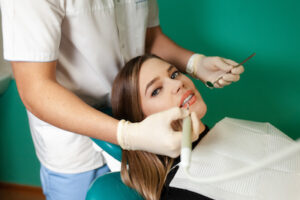
How Do You Prevent Tartar?
Preventing tartar is as easy as following proper oral health. This means following these steps regularly:
- Brush your teeth twice a day, for two minutes at a time
- Floss at least twice a day, ideally after every meal
- Use a dentist-approved fluoride toothpaste
- Limit your consumption of acidic foods/drinks, sugars, and starches
- Avoid smoking/chewing tobacco
- Visit your dentist every 6 months for regular check-ups and cleaning
- Replace your toothbrush every 3 months, once the bristles become hard
Plaque and tartar are not completely avoidable, but if you take care of your gums and teeth, it is easier to control the growth and remove it without any serious problems forming.
Some of the foods that contain high amounts of sugar and starch that you should limit include:
- Candy
- Potato Chips
- Bread
- Ice-Cream
- Cakes, Pies, and Other Desserts
- Sugary Drinks like Soda
- Alcohol
- Fruit Juices and Sports Drinks
Fortunately, if you find yourself having a sweet tooth or a bit of a junk food addict, you can still take care of your teeth by brushing them after eating/drinking them.
Find a Dentist and Remain Proactive
This article mentions a couple of home remedies that can help you remove/control tartar buildup, but if you still need help, a dentist is a great option. As while these home remedies are helpful, ultimately, having a good dentist is ideal for maintaining proper oral health. If you don’t currently have a dentist, do some research and ask friends, family, and colleagues if they have any suggestions. Though fear of the dentist is common, it is possible to find one that you trust.
Staying proactive in practicing proper oral health care is the best way to prevent any major health problems from occurring in the future, as well as avoid any expensive treatments. If something is bothering you or you don’t feel confident and happy sharing your smile with others, it’s time to do something about it. Call your dentist and create a smile that you are proud to show off – you deserve it.
Related Questions
Are Tartar Control Toothpastes Effective?
As you most likely know, there are several different kinds of toothpaste to choose from – there is even “tartar-control” toothpaste. But, are they effective? While not widely tested, tartar-control toothpaste can be helpful in preventing calculus build-up. Toothpaste with baking soda also shows that they are better at removing plaque than toothpaste without it. What about charcoal-based toothpaste? A few years ago, charcoal-based toothpaste became popular, however, they have not been proven effective at controlling tartar and they have also not been proven to be safe to use – you should avoid these kinds of toothpaste and talk with your dentist about what they recommend.
What Does Tartar Look Like?
Plaque and tartar are different in how they affect your teeth, as well as how they look. Plaque is usually colorless, however, you may have a fuzzy feeling when you run your tongue along your teeth. Tartar on the other hand feels rough and can have a yellow or brown appearance.
Yellow or dull teeth don’t always mean that you have tartar, certain foods/drinks can cause staining to your teeth that has nothing to do with any tartar build-up. If the color bothers you, visit your dentist about whitening treatments and make sure that it isn’t a result of something else.
Is Mouthwash Effective at Preventing Tartar?
Many dental professionals advise the use of mouth rinse/mouthwash because it can be effective at reaching the nooks and crannies between your teeth. When mouthwash is used in addition to brushing and flossing, it has been shown that there is less plaque build-up and your breath often smells fresher for longer.
There are several different types of mouthwash/rinses to choose from, just like there are several different kinds of toothpaste to choose from. Consult with your dentist to see what they recommend – there are even some that have whitening effects that could be useful for you.



